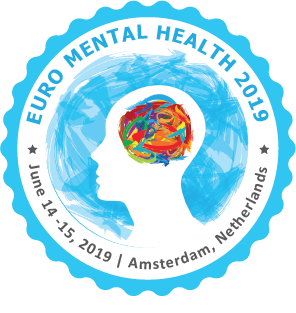
Gayatri Saxena
Springfield University Hospital, UK
Title: Treatment of Eating Disorders: Preliminary evaluation of a pilot medical education programme for adult inpatients at a national centre
Biography
Biography: Gayatri Saxena
Abstract
BACKGROUND: Eating disorders confer the highest mortality rate of all psychiatric conditions and pose an estimated £4 billion in annual costs to the NHS. Treatment at Springfield University Hospital includes psychological therapy, dietetic input and physical health monitoring. Psychoeducation is a core component of care at the time of initial diagnosis but long-term patients have evolving needs with respect to provision of information.
AIMS: 1) Develop a teaching programme on medical topics for adult eating disorder inpatients, as part of ward-based psychoeducation. 2) Educate inpatients on the medical reasoning for physician recommendations. 3) Present and discuss content which is accessible to inpatients of all education backgrounds. 4) Demonstrate improvement in patient understanding of key medical topics surrounding eating disorders.
METHODS: Programme topics included, but were not limited to, refeeding syndrome, osteoporosis and cardiac arrhythmias. The sessions were structured, doctor-led discussions that explored medical definitions, aetiology, basic pathophysiology, treatment and prevention.
Inpatient participants completed pre-session and post-session questionnaires which qualitatively assessed relevance, accessibility, interest, understanding and ability to ask questions, primarily utilising Likert-type scales (1-10). Patient demographic information was also obtained via questionnaire.
RESULTS: Of 10 inpatient participants, 9 were informal admissions and 1 was under section. The age range was 18-65 with the mode range being 18-24. 90% were female. 40% had started undergraduate degrees, 30% completed A-levels, 20% completed GCSEs and 10% had obtained a postgraduate degree. 90% rated importance of having some medical knowledge highly (score ³8). Statistical significance (p<0.05) was demonstrated for subjective improvement in understanding of some topics as well as perceived relevance to patients.
CONCLUSIONS: This programme is still in its infancy but already showing significant effect in advancing patient awareness and understanding of medical issues in the context of eating disorders. We acknowledge that this alone is unlikely to affect patient outcomes because the disorder of the mind is not addressed in this type of education. However, it may influence treatment compliance in some patient groups. Longer-term studies are required to evaluate this.

